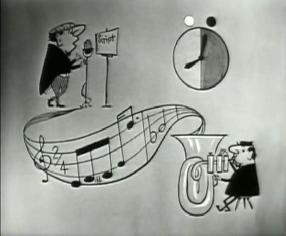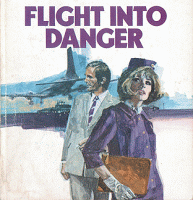Related Research Articles

Lorne Hyman Greene was a Canadian actor, musician, singer and radio personality. His notable television roles include Ben Cartwright on the Western Bonanza and Commander Adama in the original science-fiction television series Battlestar Galactica and Galactica 1980. He also worked on the Canadian television nature documentary series Lorne Greene's New Wilderness and in television commercials.

Guiding Light is an American radio and television soap opera. Guiding Light aired on CBS for 57 years between June 30, 1952, and September 18, 2009, overlapping a 19-year broadcast on radio between January 25, 1937, and June 29, 1956. With 72 years of radio and television runs, Guiding Light is the longest-running soap opera, ahead of General Hospital, and is the fifth-longest-running program in all of broadcast history; only the American country music radio program Grand Ole Opry, the BBC religious program The Daily Service (1928), the CBS religious program Music and the Spoken Word (1929), and the Norwegian children's radio program Lørdagsbarnetimen (1924–2010) have been on the air longer.

Hancock's Half Hour was a BBC radio comedy, and later television comedy series, broadcast from 1954 to 1961 and written by Ray Galton and Alan Simpson. The series starred Tony Hancock, with Sidney James; the radio version also co-starred, at various times, Moira Lister, Andrée Melly, Hattie Jacques, Bill Kerr and Kenneth Williams. The final television series, renamed simply Hancock, starred Hancock alone.
Canadian content refers to the Canadian Radio-television and Telecommunications Commission (CRTC) requirements, derived from the Broadcasting Act of Canada, that radio and television broadcasters must produce and broadcast a certain percentage of content that was at least partly written, produced, presented, or otherwise contributed to by persons from Canada. CanCon also refers to that content itself, and, more generally, to cultural and creative content that is Canadian in nature.

Flight into Danger is a 1956 Canadian live television play starring James Doohan, Corinne Conley and Cec Linder. It was written by Arthur Hailey, produced and screened by CBC Television, and broadcast on April 3, 1956, on the General Motors Theatre series. It was later adapted into two different feature films, a parody feature film, a novel, and international television versions in the United States, the United Kingdom, Germany, and Australia.

Canada Reads is an annual "battle of the books" competition organized and broadcast by Canada's public broadcaster, the CBC. The program has aired in two distinct editions, the English-language Canada Reads on CBC Radio One, and the French-language Le Combat des livres on Ici Radio-Canada Première.
CBC Television is a Canadian English-language broadcast television network owned by the Canadian Broadcasting Corporation, the national public broadcaster. The network began operations on September 6, 1952. Its French-language counterpart is ICI Radio-Canada Télé.

The United States Steel Hour is an anthology series which brought hour-long dramas to television from 1953 to 1963. The television series and the radio program that preceded it were both sponsored by the United States Steel Corporation.
Television in Canada officially began with the sign-on of the nation's first television stations in Montreal and Toronto in 1952. As with most media in Canada, the television industry, and the television programming available in that country, are strongly influenced by media in the United States, perhaps to an extent not seen in any other major industrialized nation. As a result, the government institutes quotas for "Canadian content". Nonetheless, new content is often aimed at a broader North American audience, although the similarities may be less pronounced in the predominantly French-language province of Quebec.

Ici Radio-Canada Télé is a Canadian French-language free-to-air television network owned by the Canadian Broadcasting Corporation, the national public broadcaster. Its English-language counterpart is CBC Television.

Je me souviens is the official motto of Quebec, and translated literally into English means: "I remember." The exact meaning of this short sentence is subject to several interpretations, though all relate to the history of the Quebec people. The motto can be found on all Quebec licence plates, among other things.
Radisson is a Canadian adventure television series which aired on CBC Television and Radio-Canada from 1957 to 1958.
Citizens' Forum is a Canadian current affairs television program which aired on CBC Television from 1955 to 1962.
General Motors Theatre was a Canadian television anthology drama series of television plays, which ran on CBC Television under various titles from September 18, 1952, until January 1, 1961, and in the US on ABC from October 5 to November 2, 1958. The series mainly consisted of one-hour episodes of romance, adventure, or mystery stories, with some social realist drama plays.
Pepinot and Capucine was a Canadian children's television series which aired on Radio-Canada from 1952 to 1954, and on the English CBC Television from 1954 to 1955.
Juliette is a Canadian music variety television series which aired on CBC Television from 1956 to 1966.
The Nation's Business is a Canadian free-time political television series which began on CBC Television in 1956. The show, which was established with the consultation of the Canadian political parties, initially was 10 minutes long but was increased to 15 by the end of the year.
Leonard Birman was a Canadian-American actor, who began his career in Montreal. In his 45 years on stage, screen and radio, he portrayed a wide variety of characters, including some choice roles in classical and contemporary theatre.
Andrée Basilières was a Canadian actress from Quebec. She was best known for portraying Angélique in the television drama Les Belles Histoires des pays d'en haut from 1956 to 1970.
References
- ↑ Corcelli, John (February 2005). "Dateline". Canadian Communications Foundation. Retrieved 7 May 2010.
- ↑ Rutherford, Paul (1990). When Television Was Young: Primetime Canada 1952-1967. University of Toronto Press. p. 158. ISBN 0-8020-5830-2.